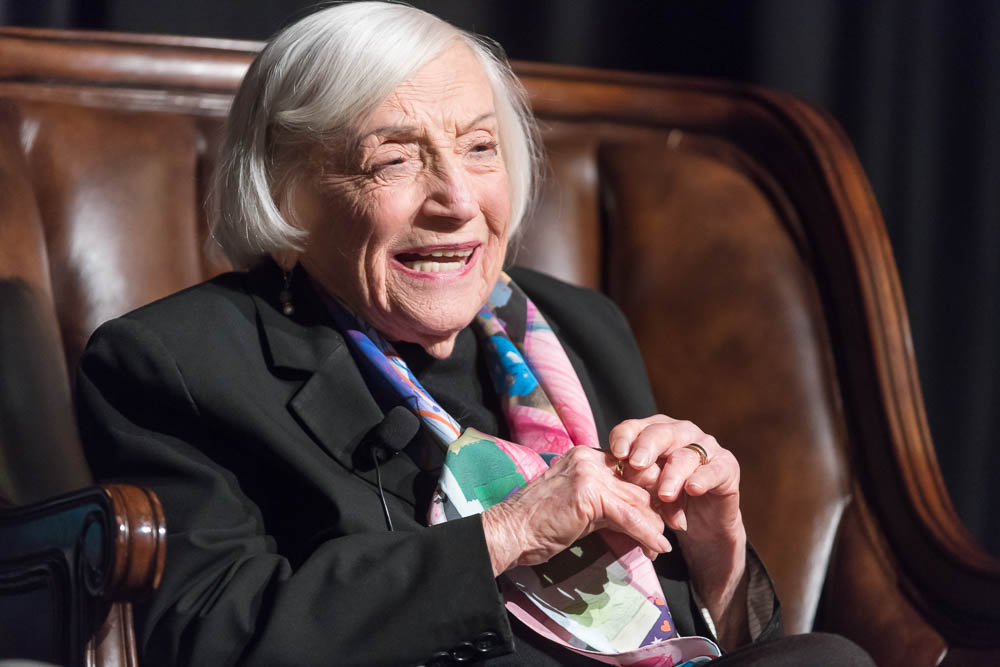
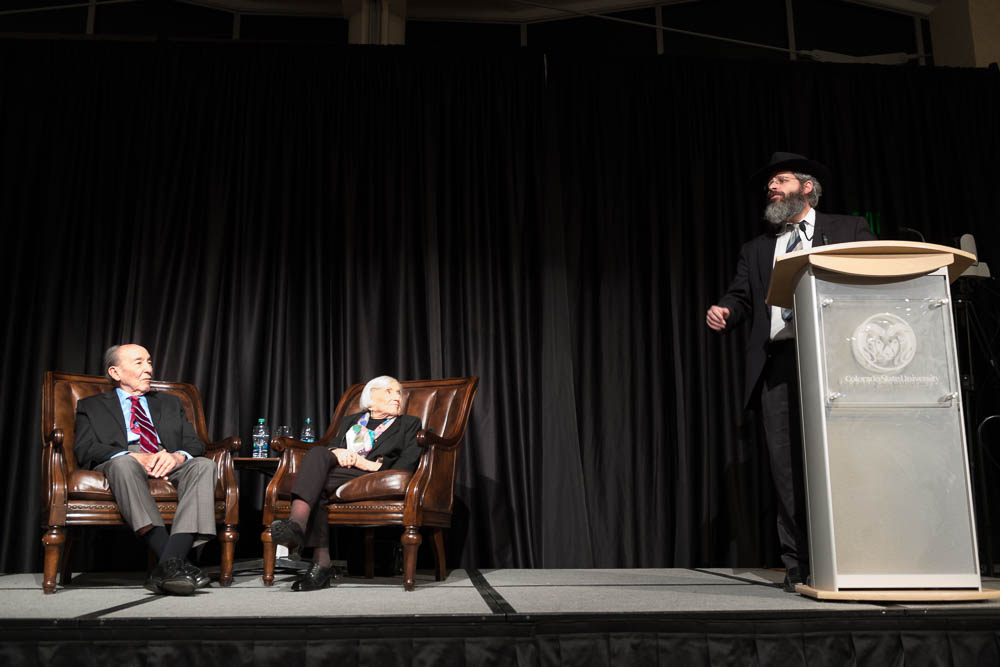
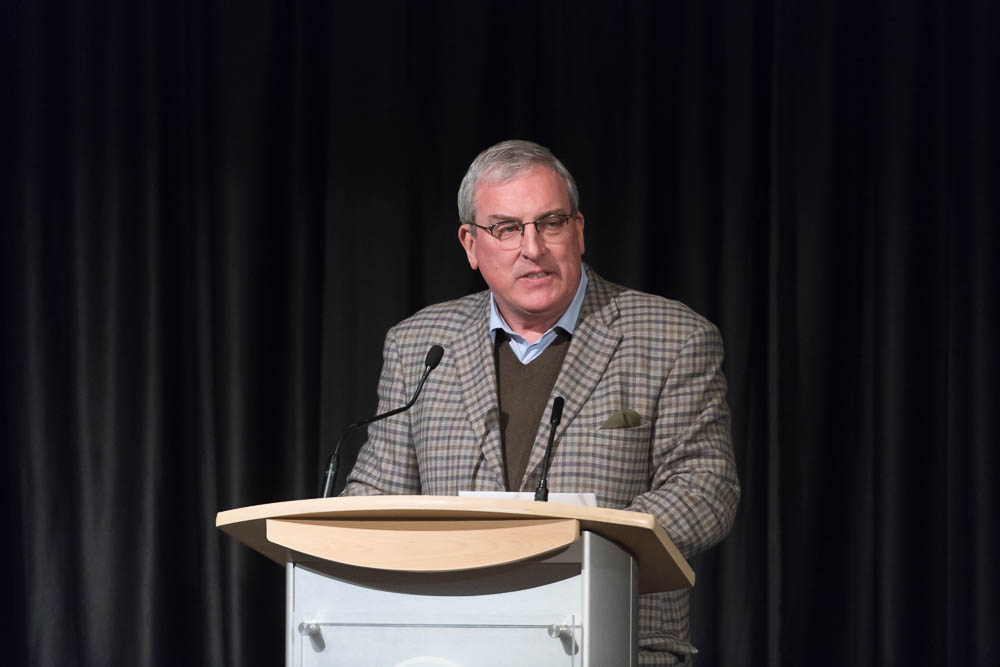
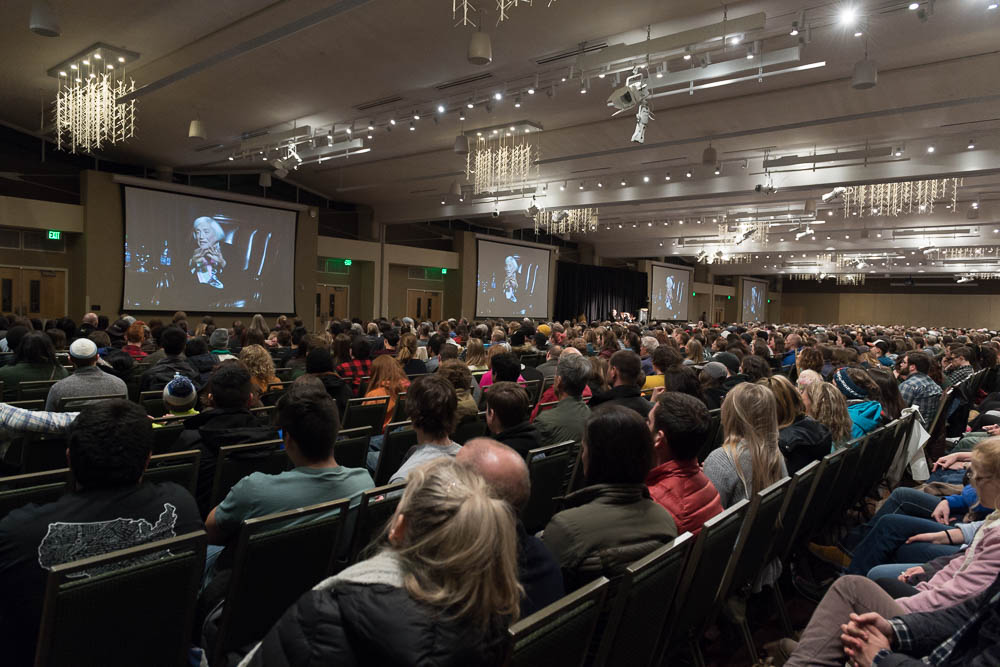
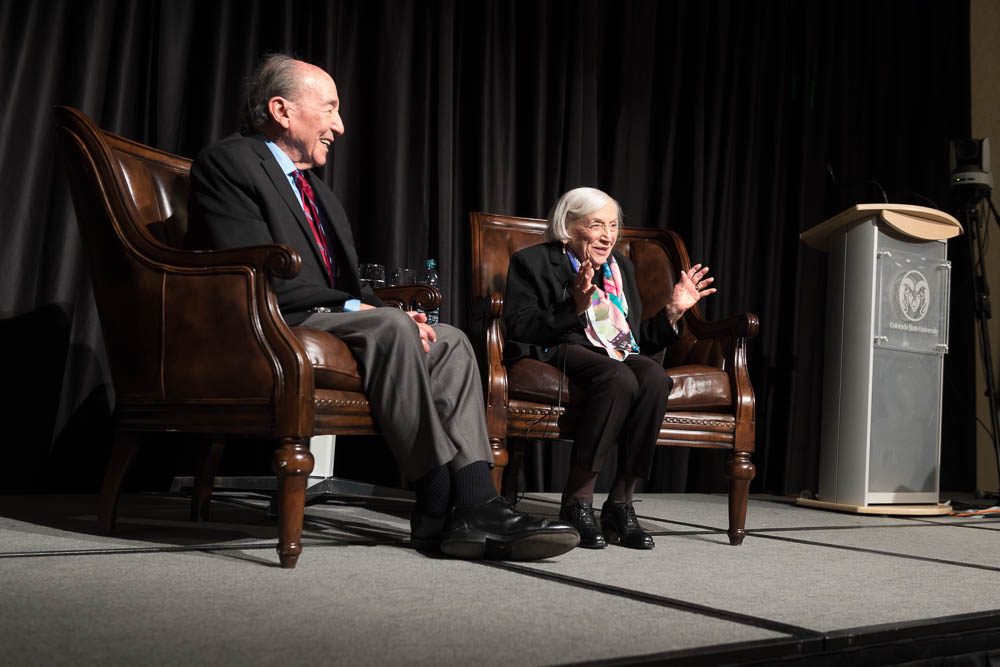
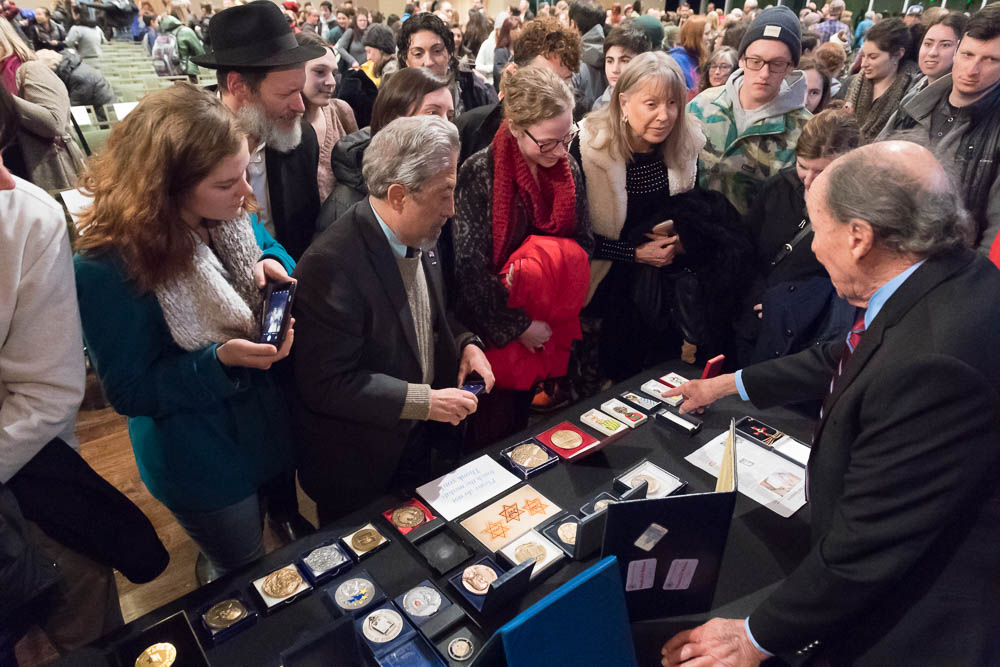
Marthe Cohn was one of seven children in a Jewish family growing up in Metz, France, during World War II. They were targets of the Nazis and spent most of their days and nights in hiding.
Little did Cohn know that the way she was living her life, in secret and traveling with false papers, was preparing her for a calling greater than she could ever imagine.
Cohn spoke about her experiences as part of the annual Evening With a Holocaust Survivor event, held on Feb. 21 in CSU’s Lory Student Center Ballroom as part of Holocaust Awareness Week. Holocaust Awareness Week events are presented by Students for Holocaust Awareness at CSU, co-sponsored by ASCSU, Hillel, Chabad, Alpha Epsilon Pi fraternity and Sigma Alpha Epsilon Pi sorority.
A sister’s sacrifice
In the summer of 1942, Cohn’s oldest sister, Stephanie, was arrested by the German police and sent to a concentration camp. The Cohn family very involved in the resistance and had planned an escape mission to free the older sister. Stephanie had a medical background and was helping the children in the camps when she learned of the family’s rescue plan. She refused to escape because she felt that what she was doing in the camps was far more important. Stephanie died at Auschwitz seven years later.
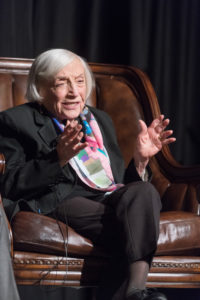
After the liberation of France, Marthe Cohn decided to join the French army, where she hoped that her nursing background could be helpful. After learning that Cohn was fluent in German, she was recruited by French intelligence officials.
“I was a 4-foot-11 female with blonde hair and blue eyes,” Cohn said. “I was an unlikely spy; no one would believe me.”
Espionage activity
After extreme and extensive training, Cohn disguised herself as a German nurse looking for her lost fiancé, a man named Martha Ulrich. Her mission: Retrieve German military information, and understand how German civilians were reacting to the war and report back to the French.
She crossed into Germany from Switzerland and was lucky. She stayed in Germany for a month, developing relationships with German civilians and soldiers. She stayed in their houses and ate their food. Cohn learned about German infantry numbers and the regiment’s next moves and would relay that information back to the French.
Cohn was playing a dangerous game, but that did not faze her.
“It was absolutely normal to risk your life at the time,” Cohn said. “It is better to die fighting than to be enslaved.”
Maintaining her secret
After the war, Cohn moved to the United States to be with her husband, Major L. Cohn. Still playing the spy game despite the war’s end, she kept her past in the dark.
It wasn’t until 1996 that Cohn felt she could tell her story.
“You are trained and conditioned by the Intelligence to keep everything a secret,” Cohn said. “I also had no proof of what I had done. I was living in America, and it had been a long time.”
She was interviewed by the Shoah Foundation and the Holocaust Museum in Washington, D.C. In 1998 Cohn traveled back to France and asked the French military for her records. Little did she know that the French military had been searching for her, too.
Honors and awards
Cohn was awarded the Medaille Militaire, a prestigious French medal of honor, for her efforts during the war. She then was awarded the title of Chevalier of the Order of the Legion d’ Honneur and the Verdienstkreuz, the Order of Merit of Germany.
Cohn has since traveled the world, talking about her past to help educate and create understanding.
“I am proud of the job I did,” said Cohn. “But I don’t think of myself as exceptional. I played lucky. I want people to know you can always choose to resist and fight in the face of injustice and evil.”